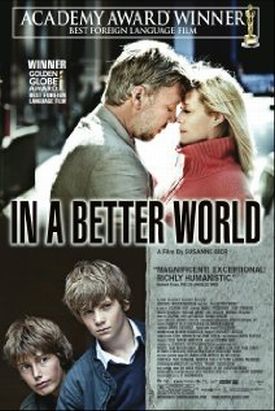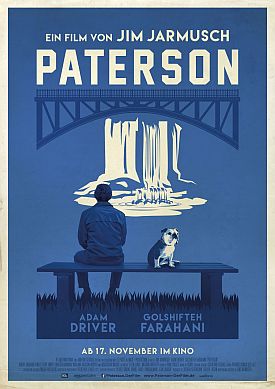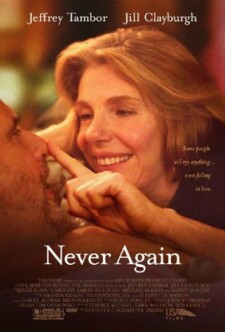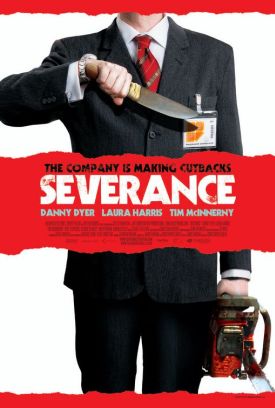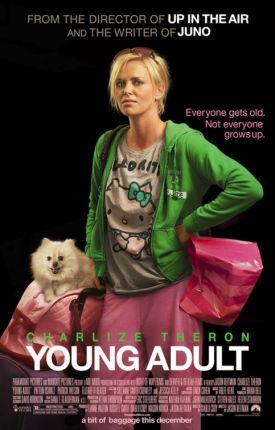In a Better World (Hævnen)
In the last three months, I have seen three movies better than anything seen in the previous three years — better than anything since 4 Months, 3 Weeks, 2 Days in 2008. One is Mike Leigh’s Another Year reviewed here in February. The second is Xavier Beauvois’s Of Gods and Men, reviewed here in March. This month, the hat trick comes with In a Better World — the Danish title is Hævnen — by Susanna Bier, the brilliant auteur of Open Hearts (2002) After the Wedding (2006) and Things We Lost in the Fire (2007). Her latest film won the Oscar as Best Foreign Film at this year’s Academy Awards and, as sometimes happens with foreign language films, actually deserved it. In a Better World begins with a scene set in Africa: a woman who has been cut with machete is brought to a tent hospital in semi-desert savannah where Anton (Mikael Persbrandt), the Swedish doctor who runs the hospital, is told how the local “Big Man” — obviously some kind of warlord — amuses himself by betting with his henchmen, whenever he sees a pregnant woman, as to the child’s sex. Once the bets are laid, he cuts her open to see who wins.
Then, at a funeral in Denmark, Christian (William Jøhnk Nielsen) a boy of 11 or 12, reads a story in English, a fable about a nightingale. His mother has died of cancer, and he is obviously deeply affected by her death. Equally obviously, he is not on good terms with his father, Claus (Ulrich Thomsen). “You don’t have to keep saying stuff, dad” he says in response to his father’s attempt to talk to him about his bereavement. After having lived with his parents in London, Christian is now taken by Claus to his Danish grandmother’s house. I would like to have seen more of this grandmother, but she remains a shadowy presence in the movie, which is very much about men and the things that matter to men. At his grandmother’s big house in the country, Christian is offered his choice of bedrooms. He picks the smallest, least comfortable one.
On his first day in his new school, Christian sees another boy being savagely bullied. This is the slight, half-Swedish Elias (Markus Rygaard) whose slightness and whose Swedishness, together with what seems to the bully, Sofus (Simon Maagaard Holm) his “rat face” and retainer constitute the latter’s grievance against him. Christian ends up sitting next to Elias in class — both have the same birthday — and this marks him out for sympathy from the bully’s party. Significantly, the class teacher says to the children that he is “sick and tired of fighting with you.” Merely for talking to Elias, Christian is also taunted by Sofus, who is much bigger and stronger than both of the other boys and who hits Christian in the face with a basketball, bloodying his nose. Later, at home, his father asks about the traces of blood but Christian tells him nothing of what happened.
The next day at school, Christian again sees Sofus bullying Elias. He follows the bigger boy into a restroom and beats him bloody with a bicycle pump, then pulls a large knife and, holding it to Sofus’s throat, tells him that if he touches Elias again, he, Christian, will kill him. Sofus has to be taken to the hospital, and both Christian and Elias are taken in by the police for questioning. Both deny any knowledge of a knife, though the police pretend to each that the other has confessed.
On the way home from the police station, Christian explains to his father the simplicity of his situation, which Claus cannot understand. “He hit me; I hit him back.”
“But with a bicycle pump?”
“I had to; he was bigger than me. If I hadn’t hit him back, then everyone would think they could hit me too.”
Dad tries to explain to Christian the liberal view of the matter. “He hits you, you hit him, he hits you again. That way it never ends.”
“Not if you hit hard enough first,” says Christian. “All schools are like that. You don’t know anything, dad.”
Elias turns out to be the son of the Swedish doctor, Anton, in the first scene, who is separated from his Danish wife, Marianne (Trine Dyrholm), another doctor. Together they have both Elias and a younger son, Morten, but Anton has had an affair. Elias is trying to persuade his father to get back together with his mother. “Maybe you should get mom some flowers,” he says in his childishly pathetic way. “Or chocolate.” Marianne says to Anton: “I was proud of us, that we didn’t get divorced like all the other idiots. That we loved each other.” Anton tells her he still does love her, and that his affair was a stupid mistake. “I want to forgive you,” she says. “But I can’t. That’s the way it is.”
Back at school, we see the three boys, Christian, Elias and Sofus, in the principal’s office with their parents. The trouble has been sorted out, now, to everyone’s satisfaction, it seems. The boys are all made to shake hands and apologize. The (female) principal then smiles broadly and says: “We have all made mistakes — and we have learned that no good comes from fighting.” All three boys are silent. “Now, are you excited about project week?” Christian and Elias are now acknowledged to be friends, and are working on a project together. Sofus shyly asks Christian if he wants to get together. Christian says no.
In the next scene we see Anton, back in Denmark to try vainly to patch up his marriage, in town with his two boys. A fight between the younger, Morten, and another boy over a swing at the park, causes Anton to separate them and brings the other boy’s father to charge up with an aggressive challenge to Anton. “Don’t you touch my son!” he says — and slaps him.
“Aren’t you going to call the police,” says Elias to his dad. He hit you!”
“What do you want me to do?” says dad. “Beat him up?” — as if the idea were absurd.
“Are you afraid?”
“That’s not the point.”
“I bet mom would love it if you weren’t such a wimp,” says Elias.
 |
Though still convinced, like Claus and the principal and all good liberals that “no good comes from fighting,” Anton returns to the garage where the aggressive man, Lars (Kim Bodnia) works as a mechanic. There, in front of his two sons as well as Christian, Lars again assaults him, but Anton affects to believe that it is he who has enjoyed the moral triumph because he showed the boys he wasn’t afraid. “It didn’t hurt,” he tells them of the other man’s slaps. “It was all he could do, and he lost.”
Christian observes coolly, “I don’t think he thought he lost.”
“But he did,” insists Anton a little petulantly. Little Morten, taking his dad’s position, uses all the dirty words about Lars that he knows, which further undermines rather than reinforcing his dad’s dubious assertion of victory.
Christian appears to be quite without emotion about it all, reacting instead as he did to Sofus’s tormenting of Elias with a sort of cold fury. Of Lars he says that “he just walks around scaring people and no one does anything about it” — and so comes up with a scheme to do something about it himself: to hit back harder as he did with Sofus. In this dangerous scheme the timid Elias is inveigled to join him, though he tries in vain to warn his father, now back in Africa, before disaster ensues. Meanwhile, when Anton has returned from his Danish sojourn, Big Man (Odiege Matthew) comes with some of his trigger-happy lieutenants and bodyguards to Anton’s hospital with a serious infection in a leg wound and asks for treatment. Everyone at the hospital knows and hates Big Man.”Why do you want to help Big Man?” says one of them. “He killed all my babies.” Anton answers grimly that he has to.
It’s true that there is something just a bit contrived about the thematic connection between Denmark and Africa, between Lars and Sofus, the Danish bullies and Big Man, the ever-so-much more dangerous African bully, and about the parallel questions of what the well-intentioned, do-gooding liberal is prepared to do about them. The “better world” of the title is, first, the utopian chimera that such people create for themselves out of their good intentions, the world where humiliation can with sufficient ingenuity be translated into victory while children, who must live in the world as it is and not as they wish it to be but who may wish as fervently as their parents that their charming fables were true, look on in bewilderment. But it is also Heaven, which the Danish title evokes unashamedly, where Christian’s mother has gone and which, he is afraid, is also nothing but a grown-up fable, designed to comfort him with lies. The artifice of the comparison is made up for by the fact that Miss Bier has no easy answers to give but only an immense compassion, in which the viewer cannot help but share, for the desperation of the need we all have to believe in and hope for something unseen and unexperienced.
Discover more from James Bowman
Subscribe to get the latest posts to your email.

